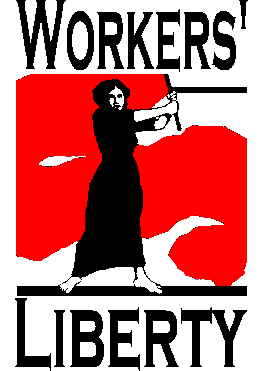
Workers' Liberty
the emancipation of the working class is the act of the working class
 |
Workers' Libertythe emancipation of the working class is the act of the working class Workers' Liberty Australia |
In this issueindustrial S11 international Breaking chains: sexuality, gender and class politics by Riki Revolutskaya international politics review
|
Fair trade, free trade?: International solidarity, not competition for jobsFair trade to save jobs?Jobs in manufacturing in Australia have disappeared in the last 3 decades, and tariffs have been reduced over the same period. Remedies proposed to restore Australian manufacturing jobs over these years include 'Buy Australian', Hawke's 'Clever Country', Australia Reconstructed and the Accord's social partnership for investment, education and training, and maintenance of tariffs. Now Fair Trade is presented by Doug Cameron, Secretary of the Australian Manufacturing Workers Union (AMWU), as the way to save or create manufacturing jobs. The charge that protectionism is racist and divisive is answered by pointing to the appalling labour and human rights conditions in some competitor countries, and offering a 'social tariff' as a support for improved conditions. It sounds fair enough. But is tariff reduction the core reason for the decline of Australian manufacturing? Globalisation of capital reflects a set of choices and decisions made by the people who control vast sums of capital, based on their own investment and political leverage to demand systems which have freed up the movement of capital around the world, across national boundaries, and within national boundaries. Tariff reduction has been one of many measures, including financial deregulation and privatisation, which have increased the mobility of capital. Trade is only one aspect of capitalist production. Labour is one component, but capital chooses from different types of labour. Cameron notes that higher tariffs of 16% in advanced manufacturing nations are unfair on Australian manufacturing with a 5% tariff. Yet even in these higher tariff economies traditional manufacturing is in decline. The policies, which Cameron hopes a Labor Government will implement to reinvigorate Australian manufacturing, are a social tariff and "a huge investment in research and development, education, training and innovation." It sounds familiar. What Doug Cameron and the Fair Traders cannot bring themselves to say is that this is a class society, and capital is the problem. The people with an interest and a capacity to challenge the decisions of capital are the workers. It is through challenging the right of capital to make production and investment decisions, that the labour movement could create the possibility for a movement to take the benefits of globalisation, and do away with the power of global capital. AMWU members and other workers are being sold a lemon by Doug Cameron and the'FairTraders'. (Continued on next page….) 'Fair trade' as an act of solidarity?Doug Cameron says that he sees a fair trade policy as being about "trying to lift the standards of working people around the world" (Workers Online, no. 62) Manufacturing workers in other countries seek to have tariffs lifted against the products they make. For example the South African Clothing and Textile Workers' Union (SACTWU) petitioned a US Trade Representative in July so that goods they produce could enter the USA free of tariffs. Workers Online (no. 62) suggested to Doug Cameron that 'Fair Trade' would penalise workers in other countries, Cameron replied'But a lot of them would have supported that scheme.' and gave as examples anti-apartheid sanctions against South Africa, and Fijian union requests for trade bans. Cameron is ducking the issue. These instances were of union action to ban trade, at the request of representatives of struggles for specific demands and democratic rights. This is completely different from a regime of 'social tariff' restrictions imposed by the guardians of democratic rights at the World Trade Organisation, or even by a collection of governments of participating countries. The 'Fair trade' proposal relies heavily on the idea that international standards can and should be set and monitored by international bodies, such as the World Trade Organisation and the International Labor Organisation, and then adopted multilaterally. The 'Fair Trade' demonstration of unionists outside ALP National Conference was clearly interested in 'Fair Trade' to save their jobs, and included many 'Buy Australian' badges. If there was any genuine expression of a desire to give solidarity to the struggles of workers in other countries, it was not apparent on the TV coverage. |
WL Australia front page | contact us